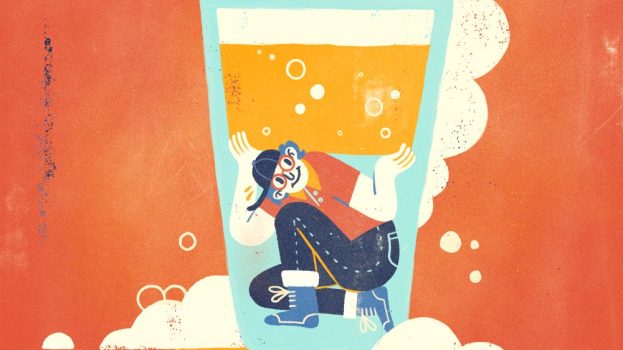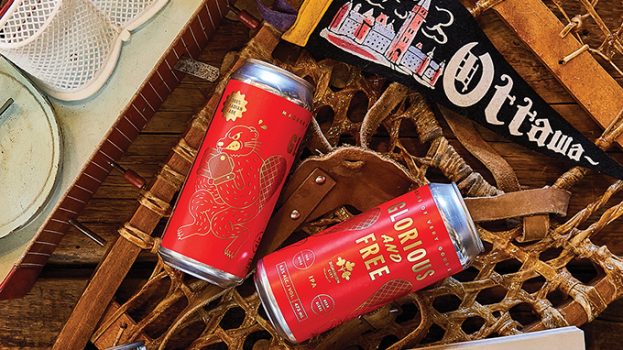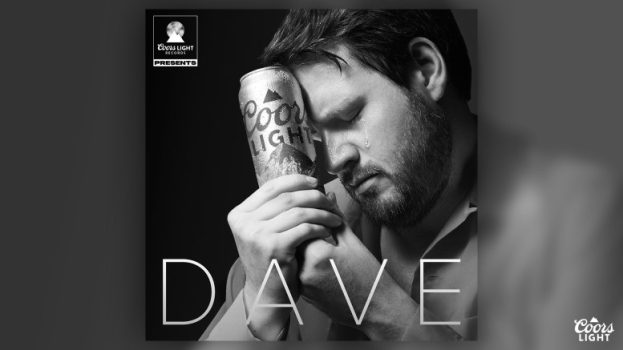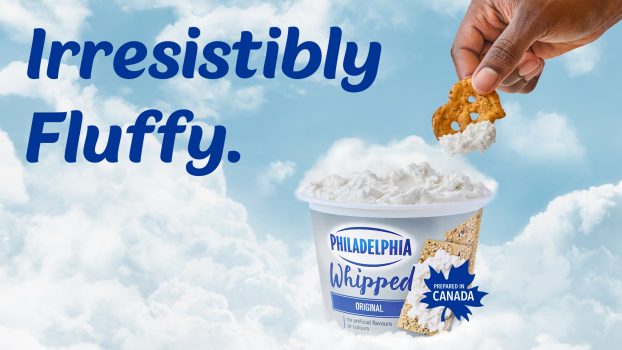
By Andrea Hernandez
The federal government plans to raise the alcohol tax by 4.7% by April 1st, directly affecting both consumers and brands. While the Ontario government recently froze the province’s beer basic tax and LCBO mark-up rates (which was scheduled for March 1) for two years until 2026, there are ongoing attempts to stop the alcohol excise tax hike – the largest in 40 years.
Beer Canada, an association that represents Canadian brewers and advocates, is launching a campaign aimed at both consumers and the government. Its work includes six 30-second spots, in which comedians Rick Moranis and Dave Thomas voice the fictional duo of Bob and Doug McKenzie discussing the tax increase. The company is supporting the campaign with a radio buy on stations around the country, as well as on digital audio apps. The organization also created a website where people can listen to the audio, learn more about the tax increase and email their local MP to let them know they disagree with the increase.
Beer launched a similar campaign last year, when the government planned to raise alcohol tax by 6.3%. It was later increased by only 2%. This year’s increase, however, will cost taxpayers about $100 million in the next two years, and Beer Canada’s president CJ Hélie says it’s the worst time to introduce such a significant increase. Beer sales are already 4% below 2022 volumes. Meanwhile, “the Canadian middle class is facing rising prices for goods and services and rising interest rates,” he says.
“Many people came out of the pandemic with some savings because they stayed at home, but those two years of savings were gone in six months,” with the post-pandemic return to business-as-usual encouraging a renewed zest for life – people took vacations again and celebrated the possibility of gathering in the same place again.
Emerging craft brewers will be the most impacted by the boosted tax, Hélie adds. “The beer industry thought premium craft beer was almost immune to [price hikes] and believed it could charge 20 cents more for a can, but now it’s different. Consumers have become much more cautious with their purchases.”
“[Also], local brands that have just launched their products will hardly survive,” he adds. “They represent a large number, since 88% of the beer consumed in Canada is brewed in the country. Perhaps, those who sell products and offer experiences, such as tours, have a better chance because people may still pay for the experience.”
Restaurants Canada, which stands for the foodservice industry, is also raising its voice against the increase. The association is joining forces with brewers, consumers, farmers, retailers and hospitality professionals to ask the government to reconsider the tax hike and maintain a 2% cap on the increase until inflation returns to the Bank of Canada’s lowered target. Its argument is based on the fact that the hike will harm the restaurant industry, which has struggled to properly recover from the pandemic. According to the most recent Restaurants Canada data, 62% of restaurants operate at a loss or barely break even, compared to 10% in pre-pandemic times.
“Higher prices forced onto consumers will push our already struggling operators into a corner. We are already witnessing consumers feeling the pinch and pulling back on discretionary spending,” said Restaurants Canada president and CEO Kelly Higginson in a statement. “Why on earth would the government want to hit us with the 4.7% tax when we are at our lowest point?”






















